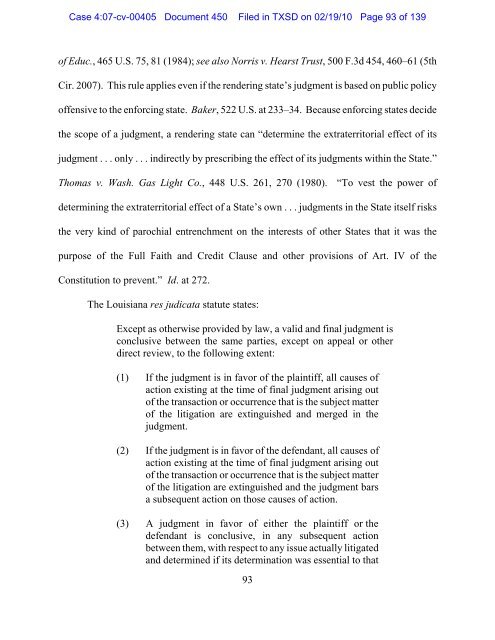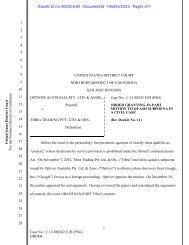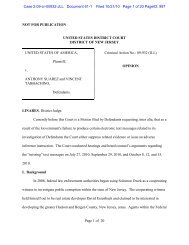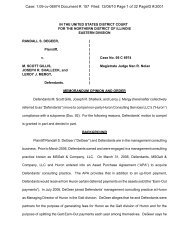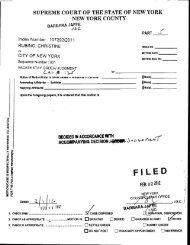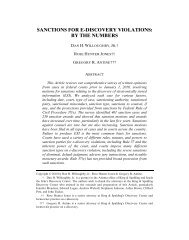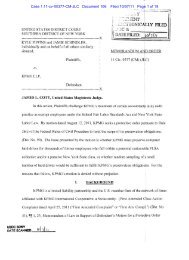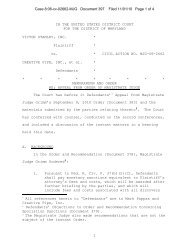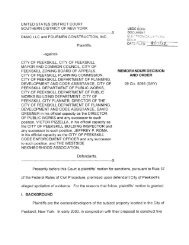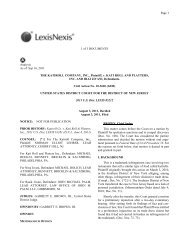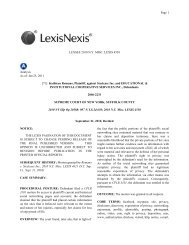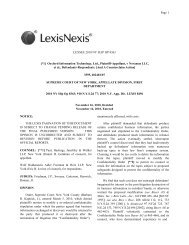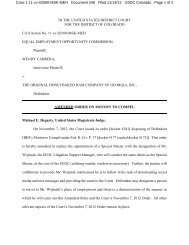Rimkus Consulting Group Inc. v. Cammarata - Ballard Spahr LLP
Rimkus Consulting Group Inc. v. Cammarata - Ballard Spahr LLP
Rimkus Consulting Group Inc. v. Cammarata - Ballard Spahr LLP
You also want an ePaper? Increase the reach of your titles
YUMPU automatically turns print PDFs into web optimized ePapers that Google loves.
Case 4:07-cv-00405 Document 450 Filed in TXSD on 02/19/10 Page 93 of 139<br />
of Educ., 465 U.S. 75, 81 (1984); see also Norris v. Hearst Trust, 500 F.3d 454, 460–61 (5th<br />
Cir. 2007). This rule applies even if the rendering state’s judgment is based on public policy<br />
offensive to the enforcing state. Baker, 522 U.S. at 233–34. Because enforcing states decide<br />
the scope of a judgment, a rendering state can “determine the extraterritorial effect of its<br />
judgment . . . only . . . indirectly by prescribing the effect of its judgments within the State.”<br />
Thomas v. Wash. Gas Light Co., 448 U.S. 261, 270 (1980). “To vest the power of<br />
determining the extraterritorial effect of a State’s own . . . judgments in the State itself risks<br />
the very kind of parochial entrenchment on the interests of other States that it was the<br />
purpose of the Full Faith and Credit Clause and other provisions of Art. IV of the<br />
Constitution to prevent.” Id. at 272.<br />
The Louisiana res judicata statute states:<br />
Except as otherwise provided by law, a valid and final judgment is<br />
conclusive between the same parties, except on appeal or other<br />
direct review, to the following extent:<br />
(1) If the judgment is in favor of the plaintiff, all causes of<br />
action existing at the time of final judgment arising out<br />
of the transaction or occurrence that is the subject matter<br />
of the litigation are extinguished and merged in the<br />
judgment.<br />
(2) If the judgment is in favor of the defendant, all causes of<br />
action existing at the time of final judgment arising out<br />
of the transaction or occurrence that is the subject matter<br />
of the litigation are extinguished and the judgment bars<br />
a subsequent action on those causes of action.<br />
(3) A judgment in favor of either the plaintiff or the<br />
defendant is conclusive, in any subsequent action<br />
between them, with respect to any issue actually litigated<br />
and determined if its determination was essential to that<br />
93


